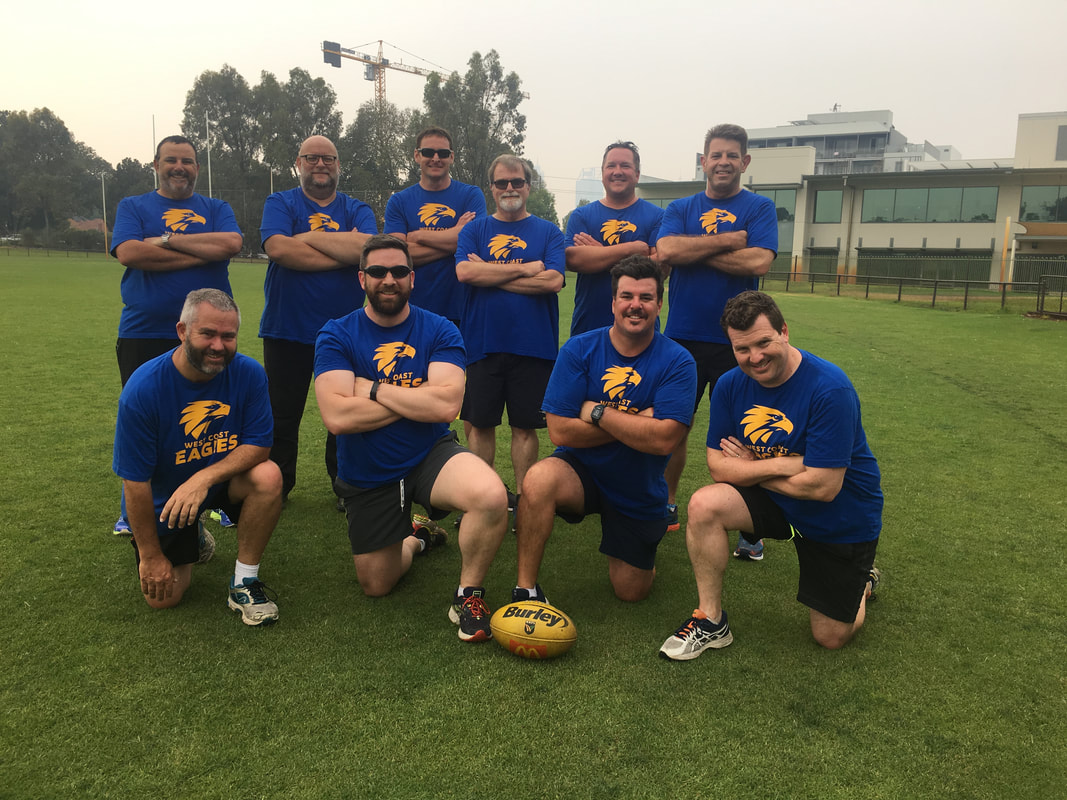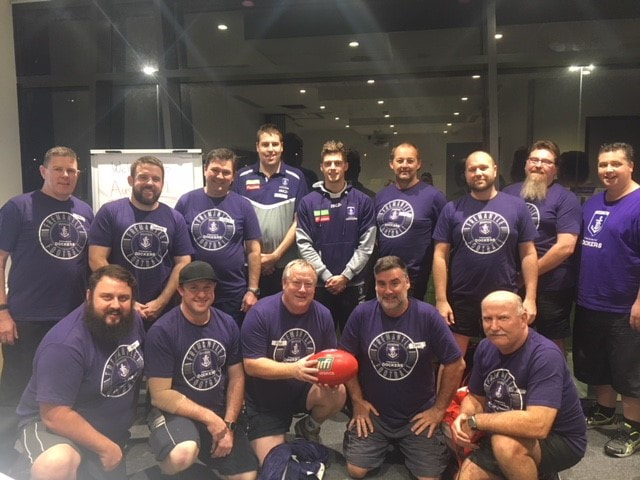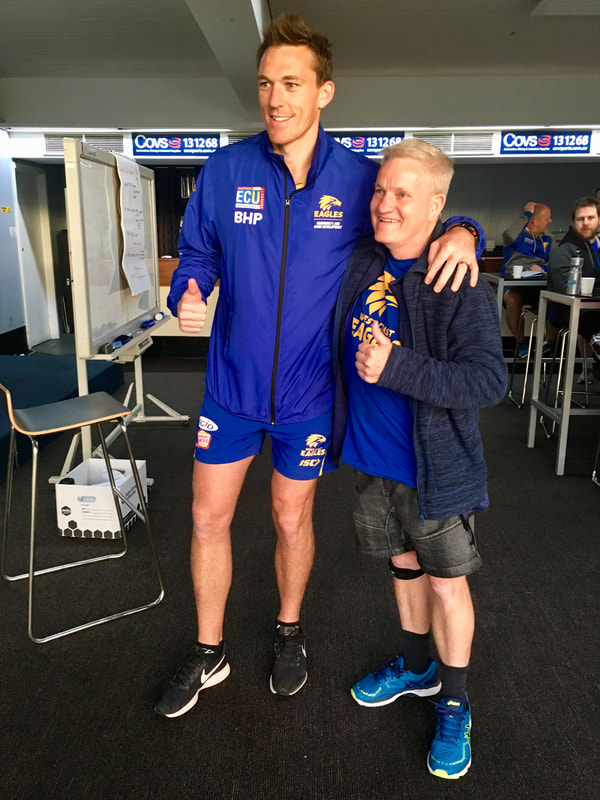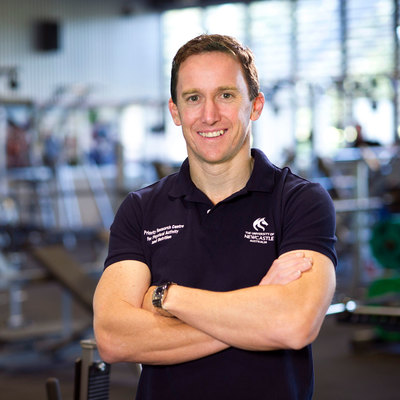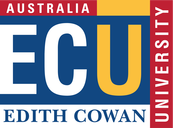Summary of our pilot project
Background
- In WA, 80% of men risk the quality and length of their lives by carrying excess body weight.
- When designed appropriately, it is possible to engage men in weight management.
- In this project we explored whether Aussie-FIT is effective in capitalising on men’s passion for AFL as a ‘hook’ to engage them in, and benefit from, a 12-week physical activity and healthy eating program.
- Aussie-FIT was completed in groups of 15 over 12, weekly 90-minute sessions. Each session included a physical activity and education component. Men discussed important issues such as reducing drinking, understanding food labels, barriers to being active and developing strategies to make sustainable changes to eating and physical activity habits. Aussie-FIT was delivered by coaches who received 16 hours of training from the research team.
- 426 men registered interest; 306 (72%) were eligible. 130 were selected on a first-come-first-serve basis for the 130 available spots.
- Men were, on average, aged 46 and were obese (83%; BMI>35) or overweight (17%; BMI>28).
- After baseline, measurements including weight, physical activity, blood pressure and mental health men were randomly allocated to receive Aussie-FIT immediately or to wait 3 months.
- 3 months later, men who completed Aussie-FIT had lost 3.33kg (3%) more than men who were waiting for the program. They did more physical activity than the comparison group and meaningful differences were also observed in several other outcomes favouring the men who had completed Aussie-FIT.
- At 6 months, results indicated that those men who completed all assessments had lost 4.5% of their initial body weight.
- Health economics analyses showed Aussie-FIT was ‘good value for money’ by Australian standards.
- Aussie-FIT is feasible to deliver, shows promise in influencing health behaviours, and is a cost-effective way to reduce obesity.
- This pilot has informed a legacy plan now underway, which includes adaptations for other sports (e.g., rugby, soccer), groups of fans (e.g., women, men with clinical conditions) and a focus on broadening reach to disadvantaged men.
The Aussie-FIT Pilot Project Research Team
Program Funder
The Aussie-FIT pilot work was funded by Healthway (grant number 31953).
Academic Partners
The Aussie-FIT pilot project program was led by a team of health, psychology, sport, nutrition and economics experts from Curtin University and Edith Cowan University in Perth, University of Newcastle in Australia, and University of Glasgow in Scotland.
Acknowledgements
The Aussie-FIT pilot was funded by Healthway (grant number 31953) and was developed by a team of physical activity and health researchers, led by Curtin University in partnership with University of Glasgow, Edith Cowan University and University of Newcastle.
The Aussie-FIT pilot builds on the Football Fans in Training (FFIT) program, the development and evaluation of which was undertaken by a research team led by the University of Glasgow with funding from various grants including a Medical Research Council (MRC) grant (reference number MC_UU_12017/3), a Chief Scientist Office (CSO) grant (reference number CZG/2/504), and a National Institute for Health Research grant (NIHR) (reference number 09/3010/06). The development and evaluation of FFIT was facilitated through partnership working with the Scottish Professional Football League Trust (SPFLT). We gratefully acknowledge some source material from the Nutrition & Dietetic Department, NHS Forth Valley and Men’s Health Clinic, Camelon, Falkirk. The program development is described in Gray et al (2013), the results of the program evaluation are reported in Wyke et al (2015) and Hunt et al (2014). These publications (and others relating to the program) are available from www.ffit.org.uk.
The Aussie-FIT pilot builds on the Football Fans in Training (FFIT) program, the development and evaluation of which was undertaken by a research team led by the University of Glasgow with funding from various grants including a Medical Research Council (MRC) grant (reference number MC_UU_12017/3), a Chief Scientist Office (CSO) grant (reference number CZG/2/504), and a National Institute for Health Research grant (NIHR) (reference number 09/3010/06). The development and evaluation of FFIT was facilitated through partnership working with the Scottish Professional Football League Trust (SPFLT). We gratefully acknowledge some source material from the Nutrition & Dietetic Department, NHS Forth Valley and Men’s Health Clinic, Camelon, Falkirk. The program development is described in Gray et al (2013), the results of the program evaluation are reported in Wyke et al (2015) and Hunt et al (2014). These publications (and others relating to the program) are available from www.ffit.org.uk.


